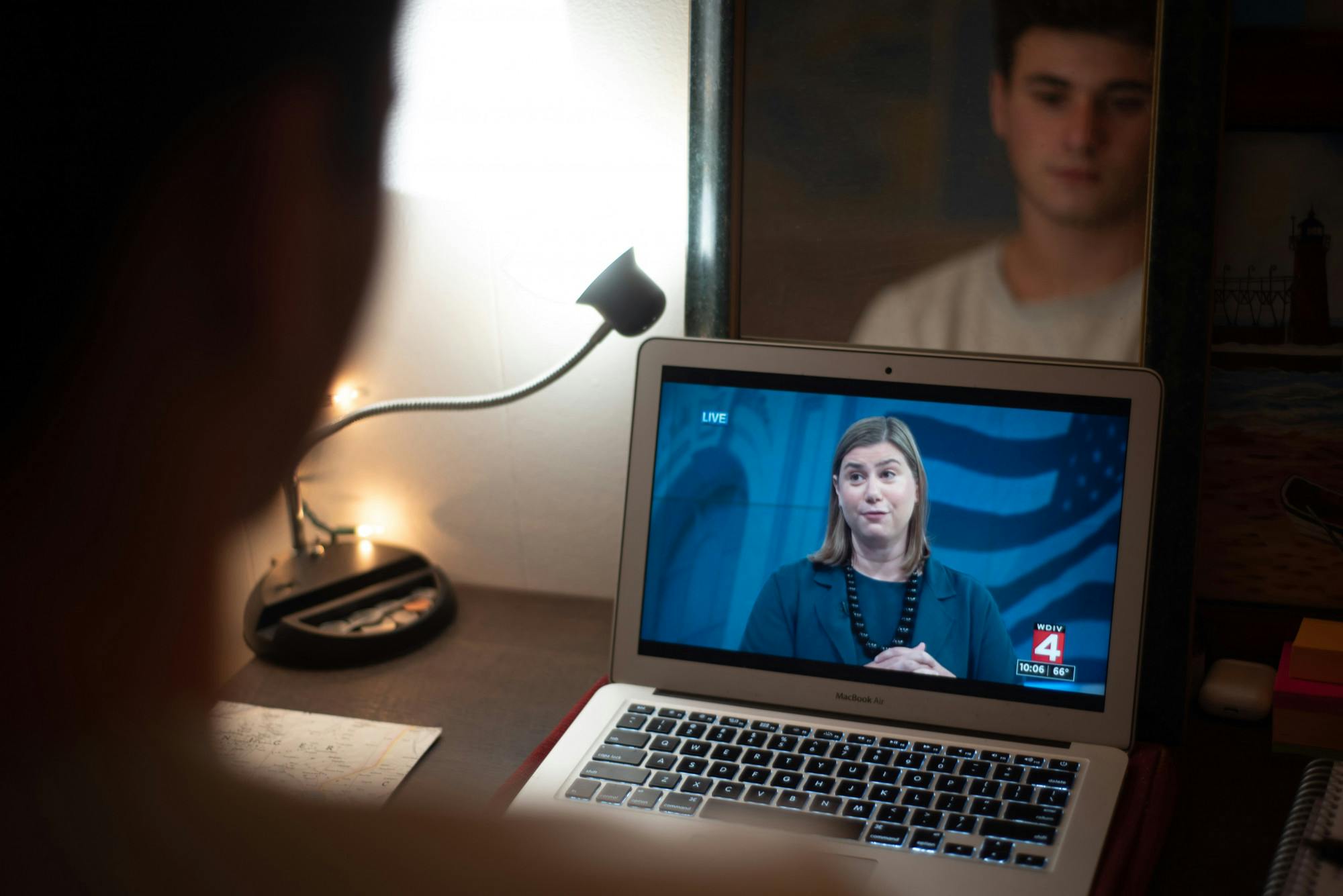With less than a month away from the election for the 8th Congressional District, Congresswoman Elissa Slotkin and her counterpart Paul Junge faced off for the last of their three debates on Oct. 7 in Howell, Michigan.
The debate started with the issue of health care and the Affordable Care Act and went on to cover issues such as stimulus bills and racial discrimination.
Healthcare
President Donald Trump has vowed to put an end to the Affordable Health Care Act (ACA), which the Supreme Court is scheduled to hear oral arguments for after the election. The latest challenge to the ACA would be the third the court has heard since they first signed the act into law.
The ACA has been the subject of partisan disagreement for a decade. Since its inception, Republicans have pushed more than 60 unsuccessful congressional votes to defeat it, including in 2017 when then-Sen. John McCain halted a repeal and replace measure.
Slotkin pushed Junge on his position supporting Trump's plan to strike out the ACA without a definitive package to takes its place.
"Its like asking someone to jump out of an airplane without knowing the parachute is there," Slotkin said.
She recalled helping her mother through ovarian cancer with a preexisting condition without health insurance and said she "believes it’s a right and that all people should have access to healthcare that they can afford."
“Whatever measure is needed to protect people with preexisting health conditions I will do that,” Junge said on the topic.
The landmark law has been watered down since Trump has taken office, with the individual mandate.
Slotkin voted for a bill that would expand the health care act back in June, but the Senate did not pass it.
Stimulus bills
One section of the debate that showed contrasting views was on a COVID-19 stimulus package and bipartisanship.
Junge said the HEROES Act, a House-passed coronavirus stimulus package, was only voted for by one Republican after Slotkin used the bill as an example of her bipartisanship.
Trump said on Oct. 6 that he has ordered his representatives to stop talks with Democrats on a new round of COVID-19 aid until after the election.
Additionally, in a series of tweets, Trump said he has rejected Democrats' latest proposal for a more than $2 trillion relief bill.
Another stimulus bill to give Americans affected by COVID-19 much needed relief looks uncertain until at least after the November election.
The same day Trump announced that talks for another stimulus bill were off, Federal Reserve Chairman Jerome Powell said that additional stimulus funding would be critical for the short-term health of the economy.
After Slotkin called herself "a very independently minded member of congress," but Junge accused her of being partisan.
Slotkin said that she has been able to pass nine bills that Trump has signed into law.
Support student media!
Please consider donating to The State News and help fund the future of journalism.
“I would hope that any member of congress would occasionally support bills that would be signed into law by a president from the opposite party,” Junge said in response.
Despite this, Slotkin has been able to reach historically Republican voters, the 8th Congressional District she secured in 2018 was won by Trump by seven points in 2016.
Black Lives Matter
Slotkin argued that Junge has not directly condemned hate groups like the Proud Boys after Trump in the presidential debate on Sept. 29 said “to stand back and stand by” when asked about the violent group.
“I think in Lansing I very clearly said 'I condemned the Proud Boys,'" Junge said. "When people protest racism, I support them."
On the issue of police reform, Junge said “It is false to say something has radically changed in national leadership that has lead to the problems in policing.”
He also said that this problem has been going on for decades citing Freddie Gray’s death while in police custody in 2015.
Although he went on to say that there were only 20 people who died in police hands in 2018. While that statistic seems to be short of the 990 people that the Washington Post cites as being shot and killed by police.
Slotkin said that she does not support defunding the police but instead believes increased funding is needed to support programs that increase police de-escalation training.
Discussion
Share and discuss “Debate Recap: The final debate between Elissa Slotkin and Paul Junge” on social media.







